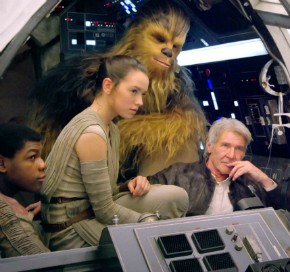Redeeming Star Wars

What was the point of that movie?” my son asked me as the credits rolled on Star Wars: The Force Awakens. He didn’t ask with hostility. He knew what he’d seen was about more than what he’d seen.
Star Wars has always been about fathers and sons, good and evil, friendship and courage. But The Force Awakens has the added burden of righting an entire franchise.
George Lucas’s original film trilogy (1977–1983) told the same story in several different ways. A young man in a desolate place longs for adventure, gets more than he bargains for, and with the help of a few friends, delivers the galaxy from evil. It was Joseph Campbell’s The Hero with a Thousand Faces combined with the best technology that the 1970s and early ’80s had to offer. The result was a masterful, intricately woven story.




